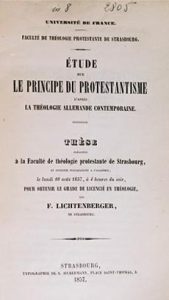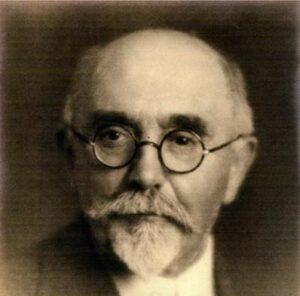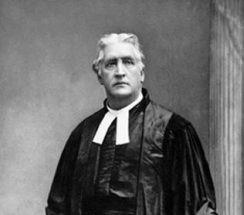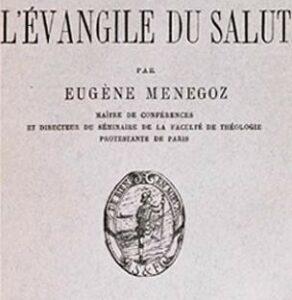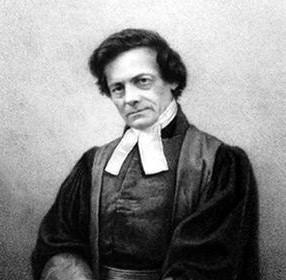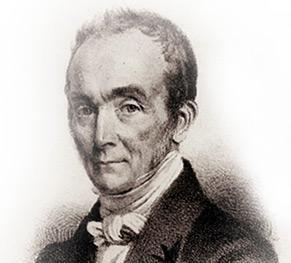Strasbourg
After studying theology in Strabourg, he stayed in both Germany and Paris several times ; he then became pastor (1858-1864) of the Eglise du Temple Neuf in Strasbourg. The subject of his degree thesis was A Study of the principles of Protestantism in the light of contemporary German theology and the subject of his doctorate thesis (1860) was Constituent elements of dogmatic science. In 1864,he was appointed Professor of Ethics at the Faculty of Theology. He became a moderate evangelical, under the influence of Vinet, because he was against a formal approach in liturgy or doctrine.
In February 1871, Frédéric Lichtenberger preached “Our duty is to serve France” ; he refused to teach ethics in German or to support the new administration and in his famous sermon “Alsace is in mourning” he called for Christians to listen to their conscience and to make a stand against the abuse of force.
Paris
He had to leave Strasbourg and went to live in Paris where he became pastor of the Eglise Libre de la Chapelle Taitbout. In 1873 he founded a private School of Theology with Edmond de Pressensé, Eugène Bersier and Auguste Sabatier. One of the aims of this School was to enable the former professors of the Faculty of Strasbourg, who were in exile, to take up their teaching posts again. In 1877 he was appointed professor of evangelical ethics at the new protestant Faculty of Theology in Paris, which had in fact previously originated in Strasbourg University ; he became Dean in 1880. In his book Histoire des Idées Religieuses en Allemagne depuis le milieu du XVIIIe siècle jusqu’à nos jours published in 1873, his aim was to make known to French protestants the results of research carried out by the German history school. He supervised the publishing of the 13 volumes of the Encyclopédie des sciences religieuses (1877-1872), which was the combined work of the main French-speaking theologians of the time, regardless of their personal opinions concerning dogma or doctrine.
He was a member of the General Council of Faculties of the Superior Council of Public Instruction, of the Committee of the Society of French Protestant History and president of the board of directors of the Journal du Protestantisme Français. In all these positions of responsibility, his main aim was to be an instrument of conciliation between the different trends of French Protestantism at that time.

